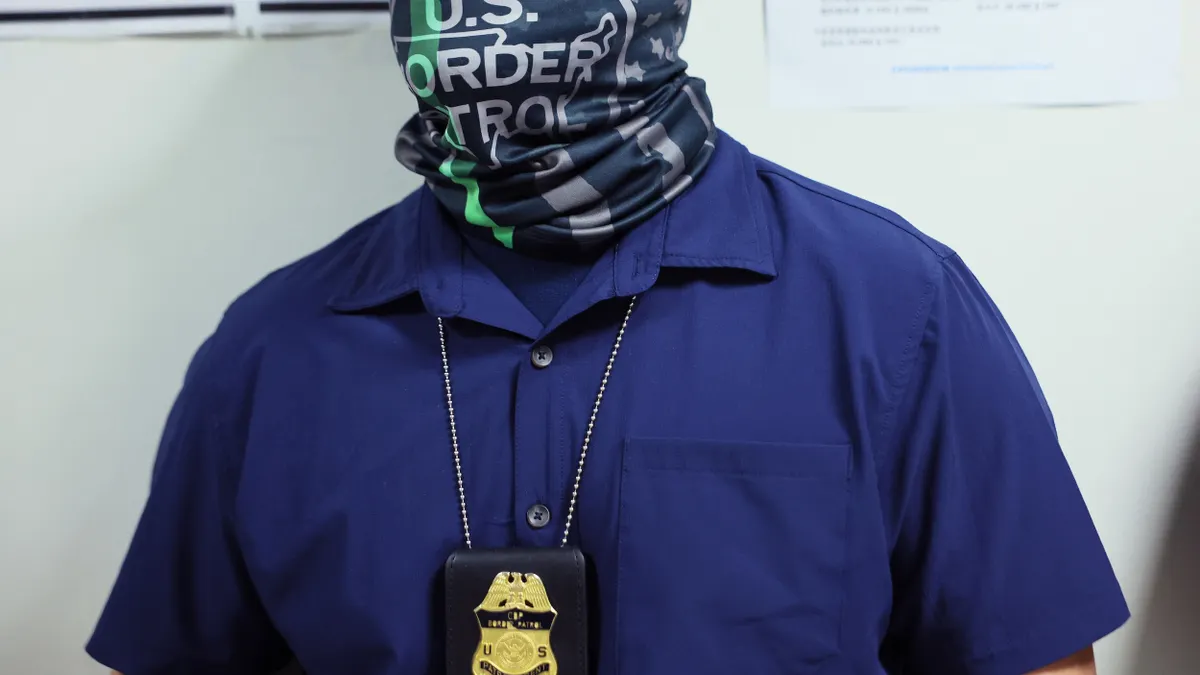The U.S. federal government has been stepping up immigration enforcement, increasing raids on businesses and ramping up the number of Immigration and Customs Enforcement (ICE) agents it employs to meet aggressive deportation quotas and increased worksite enforcement.
When it comes to convenience stores, staff training is one of the biggest tools retailers can use to prepare for if ICE comes knocking, David Jones, a managing partner with law firm Fisher and Phillips’ Memphis office and co-chair of its immigration practice, said in a NACS webinar on how to handle immigration enforcement.
“You have to make sure that everybody who is going to have any contact with ICE … knows how to respond,” said Jones.
While c-stores haven’t been a major target of enforcement actions to date, it’s important operators know what to do as the administration’s immigration policy evolves, said Jon Taets, NACS’ director of government relations.
Preparing ahead of time
Governmental agencies are doling out harsher penalties for not only individuals but also companies that violate immigration law, Jones noted. Therefore, companies should prepare to be closely scrutinized by federal officials and agencies.
The first step is ensuring all I-9 forms are in order and properly checked by HR departments. The I-9 is an employment eligibility document — the company’s proof that it did due diligence to make sure all its employees can legally work in the U.S. Jones recommended c-store operators implement mandatory training and a policy that workers need to certify that they’ve read.
Training is important because the I-9 is “the most commonly messed up form that I've ever encountered in my life,” said Jones.
He added that employers may also want to have an outside company audit their I-9 compliance to avoid surprise legal problems.
“You have to make sure that everybody who is going to have any contact with ICE … knows how to respond.”

David Jones
Managing partner with law firm Fisher and Phillips’ Memphis office
Even though there are penalties for completing I-9 forms late, Jones said it’s best to get any missing forms filed as soon as possible. Late-filing penalties may hurt, but they’re not as bad as those that come if an employee is undocumented.
Retailers can also use the government’s E-Verify tool to verify I-9 documents. However, if a retailer uses that tool, it needs to make sure everyone involved is trained on how to use it and is aware that it can still return false positives or negatives, Jones said.
Even retailers who’ve done their due diligence may still run into problems, since the current administration is revoking programs that had given certain workers legal permission to work in the U.S., Jones said.
“These people may be working for you, may have gone through all the proper documentation to be working for you, and then suddenly they're no longer eligible,” Jones said. “And you may not necessarily be aware of that, but ICE will be.”
There are ways to check if an employee’s status has been revoked, including E-Verify, but Jones said there’s currently no requirement for businesses to do so.
Engaging with on-site enforcement
ICE or Customs and Borders Protection may visit a business for one of three reasons: to start an I-9 audit, to conduct a workplace raid, or to detain a specific person.
Worksite raids need to be accompanied by a judicial warrant that is signed by a judge and outlines the scope of what agents can look at, Jones said. With a judicial warrant, officers must be allowed into the areas or shown items specified in the warrant, and may be able to take other things if they are in view in an area where the officers are looking. But they must otherwise adhere to the warrant.
Penalties for I-9 violations
I-9’s need to be completed by three business days after an employee begins working for a company. Penalties for noncompliance include:
- Paperwork violations can range between $288 and $2,861 per instance, according to data shared by Jones.
- Knowingly hiring unauthorized workers comes with fines of between $716 and $5,724 for the first instance.
- Subsequent instances of knowingly hiring unauthorized workers range between $5,724 and $28,619 per employee.
- Those knowingly hiring unauthorized workers can also be arrested on charges like harboring, conspiracy or tax evasion.
“They can't just look for something else intentionally,” said Jones. “They can't show up at a different location. They can’t show up on a different day.”
Alternatively, ICE may show up with an administrative warrant, which is a document from the Department of Homeland Security stating their intent to arrest a specific person. Employers are not under any obligation to cooperate with those warrants, but officers can enter any public areas, including the parking lot and interior of the store, to search for that individual.
While an administrative warrant does not allow ICE officers to search private spaces, they can conduct a search if they develop probable cause of a different crime taking place.
Finally, ICE may also show up to give notice of an inspection of I-9’s. Once they alert a business, the company has three days to pull those files together. ICE may try to get businesses to waive that time period, but Jones suggests using the allotted time.
Jones recommended that retailers avoid letting ICE review documents on site, since that can disrupt business and may give the agency access to information to which it is not entitled. Bringing documents to ICE or delivering them electronically is preferred, he said.
Jones also noted that if officers come into the store without a warrant, refuse to identify themselves and are disrupting business, companies can call police to have them removed.
Have a plan and ensure adequate training
Jones advised c-stores to designate certain workers to speak with ICE on behalf of the company. Other workers should be trained to tell ICE agents that they are not authorized to assist them and then to call the company’s designated spokesperson to the site.
The authorized person should start by asking if ICE has a warrant. If they have no warrant, the employee can deny access to workers, documents and non-public areas, Jones said.
If agents have a warrant, the company representative should see if it’s administrative or judicial. If it’s a judicial warrant, they should read it carefully to make sure it has the proper date and location and to understand what areas and items it covers. They should also get a copy of the warrant, and they may want to document what items are taken or any interactions agents had in the store.
Retailers should make sure all private spaces are clearly marked with signage noting that only employees are allowed to enter.
“We want to ensure that we're not giving ICE any opportunity to say that they were allowed in the place or the place was public,” Jones said.
While agents who access private areas cannot be stopped from arresting a person if they have an administrative warrant, the signage may be able to halt them from expanding their enforcement action, Jones said
“ICE will do whatever it can to get into those places. So we want to make sure that things are clearly marked.”


















